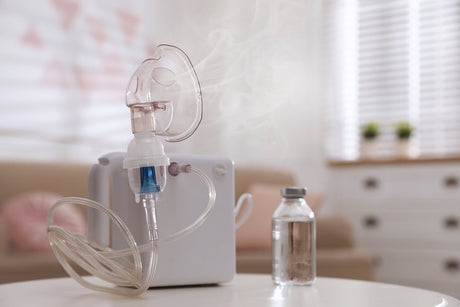Menopause marks a significant milestone in a woman's life, signifying the end of her menstrual cycle. Often wrapped in mystery and uncertainty, this natural transition can affect physical, emotional, and mental health. In this detailed guide, we'll explore the ins and outs of menopause, providing you with essential information to understand and manage this phase with grace and well-being. Whether you're approaching menopause or are currently experiencing its effects, this article offers valuable insights and practical advice to help you navigate this change smoothly.
Understanding Menopause
Menopause is a natural biological process that marks the end of menstruation, delineated officially when a woman has gone 12 months without having a menstrual period. Before reaching this milestone, women typically go through a transitional time called perimenopause. Perimenopause can last from four to eight years and varies from woman to woman. Understanding the phases of menopause and what to expect is foundational to managing its effects.
What is Menopause and When Does it Start?
Menopause can be defined as the ceasing of the menstrual cycle due to the depletion of ovarian follicles. The fluctuation of reproductive hormones like estrogen and progesterone during perimenopause and menopause can elicit numerous physical and emotional symptoms. The common age range for menopause is between 45 to 55, with the average age being 51 in the United States. However, some experience menopause earlier due to certain medical treatments, procedures, or other underlying health conditions.
The Phases of Menopause
To truly comprehend menopause, one must consider the component phases. These are essential to decoding the physical, emotional, and hormonal shifts that occur.
Pre-Menopause:
The pre-menopause stage is characterized by regular menstrual cycles and relatively stable hormone levels. This is the period when most major hormonal events are behind you.
Perimenopause:
The perimenopausal phase signals the beginning of the end. Infrequent, irregular menstrual periods and the onset of common menopausal symptoms signify the pending changes. This phase can be tumultuous, as hormonal fluctuations can be unpredictable, leading to a multitude of symptoms.
Menopause:
At this stage, a woman has completed a full year without a menstrual period. This is when the majority of symptoms should settle, as hormone levels stabilize at their depleted state.
Postmenopause:
Postmenopause is the years following menopause, where one can expect a recalibration of health and well-being. This phase is marked by the absence of menstruation and the continued absence of menstrual periods for 12 months or more without another biological cause.
Menopause Symptoms: Signs and Side-effects
The symptoms of menopause are as diverse as they are numerous, varying from woman to woman. Some experience a mild transition, while others face significant physical and emotional changes. It’s important to note that not every woman will face every symptom, to the same degree, or for the same duration.
Common Physical Symptoms of Menopause
Physical changes can be the most tangible hallmarks of menopause. From hot flashes and night sweats to vaginal dryness and changes in sexual function, the realm of physical symptoms can significantly affect one's daily life and sense of well-being.
Hot Flashes and Night Sweats
Hot flashes, often accompanied by sweat-inducing nervousness, are dramatic but common experiences. They can be bothersome, disrupt sleep, and, for some, are the most challenging aspect of menopause.
Learn more about hot flashes
Bladder Changes
The tissues of the urinary tract become drier and less elastic. These changes can lead to more frequent urinary infections, as well as stress incontinence.
Emotional and Cognitive Symptoms
Menopause is not just a physical process; it has a significant impact on mood. Emotional changes can span a breadth of symptoms from mood swings and increased stress to difficulty concentrating and memory lapses.
Mood Swings and Depression
The hormonal fluctuations during perimenopause and menopause can trigger mood swings, ranging from highs to lows, and for some, lead to depression.
Cognitive Changes
Menopause can affect cognitive function, including concentration and memory. Brain fog is a colloquial term used to describe this cognitive haziness that some women experience.
Sleep Disturbances
Sleep is often disrupted by hot flashes and night sweats, leading to insomnia and daytime fatigue. The lack of sleep can exacerbate other menopausal symptoms, creating a cycle of discomfort.
Managing the Menopause Transition
Managing menopause requires a multi-faceted approach, recognizing the unique needs and thresholds of each individual. From lifestyle adjustments to medical treatments, there are numerous strategies one can employ to ease the transition.
Lifestyle Adjustments and Self-care
Incorporating self-care into one's daily routine is vital during menopause. Simple lifestyle adjustments can alleviate symptoms and contribute to overall wellness.
Diet and Nutrition
A balanced diet rich in fruits, vegetables, and whole grains, while low in fat, can help combat weight gain and maintain bone health. Foods known as 'phytoestrogens' may help manage hot flashes by mimicking the natural estrogen hormones in the body.
Learn more about healthy diet options
Exercise and Physical Activity
Regular physical activity can help control weight, reduce hot flashes, improve mood, and promote better sleep. With the selection of low-impact and weight-bearing exercises, one can maintain bone density, an essential consideration for postmenopausal health.
Learn more about exercise and health
Stress Management and Relaxation Techniques
Stress can magnify the symptoms of menopause. Engaging in relaxation techniques such as deep breathing, meditation, or yoga can provide an emotional release and reduce stress levels.
Medical and Alternative Treatments for Menopausal Symptoms
For women with severe or persistent symptoms, various medical and alternative treatments are available. It's important to consult with a healthcare provider to develop a personalized treatment plan.
Hormone Replacement Therapy (HRT)
Hormone replacement therapy can be effective in managing hot flashes and night sweats. However, it is not without risks and is recommended for short-term use only.
Non-hormonal Therapies
Non-hormonal therapies, such as selective serotonin reuptake inhibitors (SSRIs) and selective norepinephrine reuptake inhibitors (SNRIs), usually used as antidepressants, can help manage hot flashes.
Complementary and Alternative Medicine (CAM)
Many women turn to CAM therapies like acupuncture, herbal supplements, and bioidentical hormones to manage menopausal symptoms. It's critical to research these options thoroughly and consult with a healthcare professional knowledgeable in CAM.
Equipping Your Network: Support Systems and Societal Perspectives
Navigating menopause doesn't have to be a solitary venture. Cultivating a strong network of support, including friends, family, and healthcare professionals, can make the transition more manageable. Addressing societal perspectives and norms around menopause is also an essential aspect of the support system.
Building a Support Network
Support networks are crucial for seeking guidance, finding common experiences, and sharing the emotional burden. This network can involve physical support, such as assistance with household chores, as well as emotional support, through confidantes and support groups.
Engaging with Healthcare Providers
Open communication with healthcare providers is critical for understanding menopause and receiving appropriate care. Advocating for yourself and your health needs can ensure that you're making informed decisions about your well-being.
Societal Stigmas and Misconceptions
Menopause is often shrouded in misconceptions and stigmas. It’s important to challenge these societal perceptions and foster an environment of understanding and support for women experiencing menopause.
Products Designed for Relief
With modern innovation comes solutions to help women manage the symptoms of menopause more effectively. Innovative products, such as the Embr Wave 2 device, are designed to provide personalized, on-the-go relief from hot flashes and other temperature-related discomforts.
Exploring the Embr Wave 2 Personal Cooling Device
The Embr Wave 2 is a state-of-the-art personal cooling device that allows you to control your comfort. By precisely adjusting the temperature on your wrist, you can experience relief from hot flashes.
How It Works and Its Benefits
The Embr Wave 2 uses advanced warming and cooling technologies to offer immediate relief when you need it most. With the touch of a button, you can activate waves of cooling or heat, adjusting to your preference and comfort level.
Incorporating the Embr Wave 2 into Your Menopause Toolkit
By adding the Embr Wave 2 to your arsenal of menopause management tools, you can take control of your immediate comfort, ensuring that unexpected hot flashes or temperature swings won't catch you off guard. The discreet and stylish design makes it a practical accessory for everyday use, at work, home, or on-the-go.
Mastering Menopause
Menopause is a natural biological process, not a medical problem to solve. With the right information and tools, you can manage the symptoms and continue to live a vibrant, fulfilling life. Understanding what to expect and how to care for your body during this time is key. Embrace this phase with confidence, supported by resources like the Embr Wave 2 device
FAQ
What Are the First Signs of Menopause?
The first signs of menopause typically appear during perimenopause and can include irregular periods, hot flashes, and sleep disturbances. These symptoms are a result of the natural decline in reproductive hormones.
What Age Does Menopause Start?
The average age for menopause is 51, but it can start anywhere from the late 30s to the early 60s. Premature menopause is defined as menopause occurring before the age of 40 and can be a result of genetics, autoimmune disease, or certain medical treatments.
Can I Get Pregnant During Perimenopause?
Pregnancy can still occur during perimenopause, as ovulation and menstruation can be irregular. Until menopause is confirmed (12 months after your last period), you should continue using contraception if you do not wish to become pregnant.
As a leading supplier of durable and home medical equipment (DME and HME), ApriaDirect sources and distributes a wide range of treatment solutions, including home medical equipment and healthcare solutions.
We're here to support you as you work toward your improved health and well-being. We strive to meet your ever-evolving healthcare requirements with individualized attention and premium quality treatment solutions.
Looking to add home medical supplies? Browse our premium solutions and let us help you get the most out of every day.
Looking for advice? Our helpful agents are on call at (800) 780-1508 between 8:00 am - 10:00 pm EST daily. Get in touch today.





